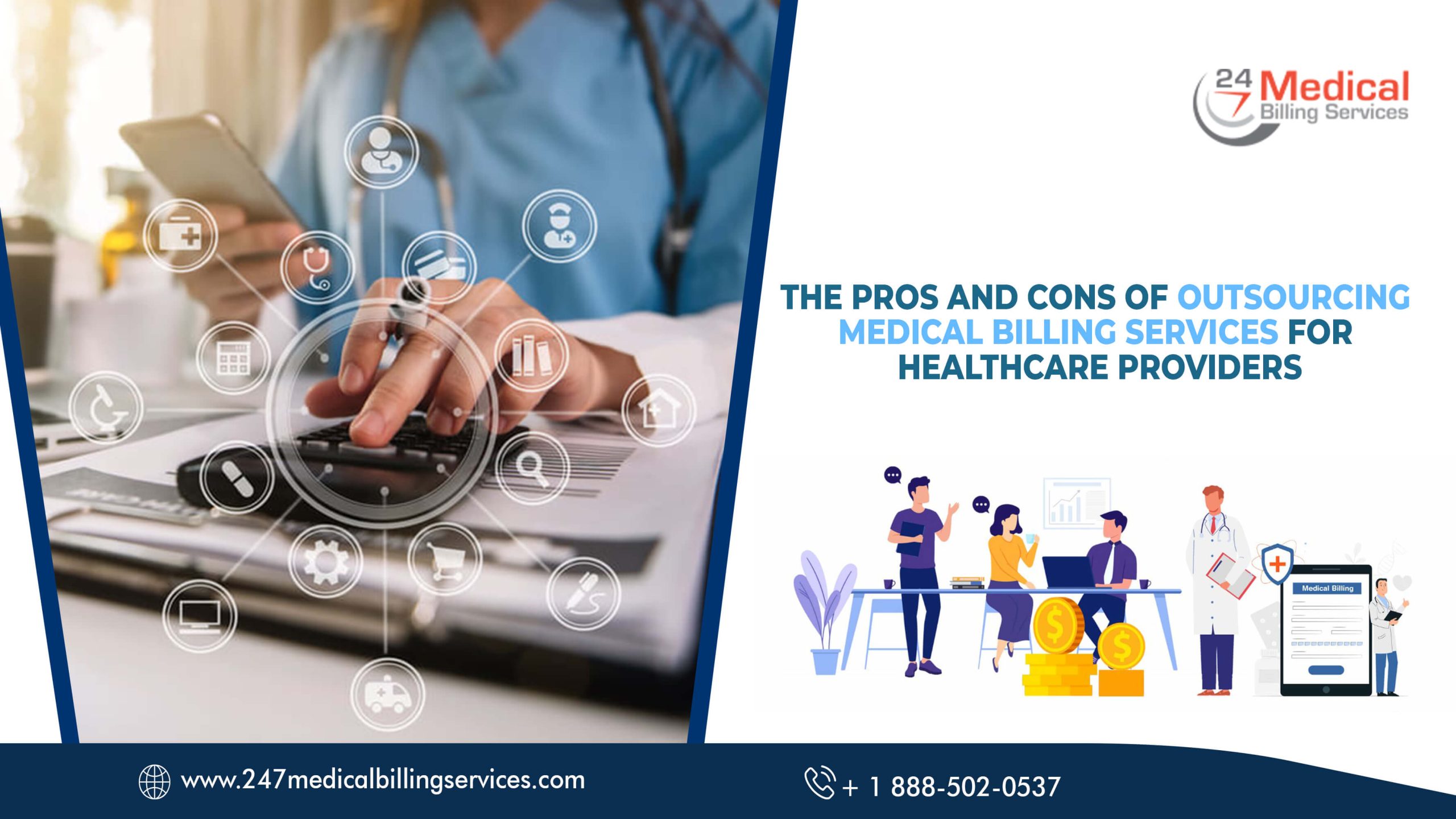
The Pros and Cons of Outsourcing Medical Billing Services for Healthcare Providers
The overall success of a medical practice is mostly determined by patient care and revenue management. Although you have no trouble handling patient care, revenue management may be beyond your scope. A lot goes into proper medical billing management, all of which is represented in a healthy revenue cycle. There are some pros and cons of outsourcing medical billing services for healthcare providers.
Your practice will need to either engage skilled personnel or train administrative personnel to do the many activities associated with medical billing. These responsibilities begin with appointment scheduling and must be completed well after the patient's visit is completed. This means that, in addition to their other obligations, your personnel will be required to complete a large amount of paperwork and follow-up. Errors are more likely to occur in this circumstance; after all, it is human to make inaccuracy.
Allow professionals to handle medical billing though you and your team focus on making your patients' visits as relaxing and efficient as possible. However, the prospect of outsourcing medical billing at your practice may make you nervous and overwhelmed. This is especially true if you aren't entirely informed of how the entire procedure works.
Outsourcing Medical Billing Services for Healthcare Providers, like everything else, has advantages and disadvantages, which are outlined below:
Pros of Outsourcing Medical Billing Services
- Access to Expert Consulting
Medical billing is a tough process. It entails several moving elements along with regular changes in the revenue cycle management scenario. Industry norms and regulations are rapidly updated, and if you do not have specially trained employees to stay up with the most recent requirements, you will quickly fall behind. You can be more confident by outsourcing your medical billing to a team of professionals working to implement the best practices for your specialty.
- Highly Integrated Electronic Health Records (EHR)
If you've ever managed medical billing, you'll know that just entering patient data into electronic health records (EHR) systems takes a prolonged time. This is every biller's worst nightmare. Some medical facilities are concerned that offsite medical billing will be difficult to integrate with their existing EHR systems and processes. However, you can easily alleviate this concern by working with a billing provider who is well-versed in major EHR systems or by selecting a provider who will make the adjustment for you.
When you outsource medical billing, you no longer have to deal with the technological challenges that can develop with electronic health record systems.
Cons of Outsourcing Medical Billing Services
- Lack of Control Over Resource
One major fear for healthcare providers is that once they choose to outsource to an outsider medical billing company, they may lose control. Conflicting infrastructure and software can impede transparency between both parties in situations like this.
Another source of concern for medical practices is that certain outsourcing companies only select high-value accounts to increase their processing potential. Finally, if your patients are not comfortable with the idea of external agents accessing and processing their account information, customer service issues may arise.
- Improper Security Protocols
While outsourcing medical billing and coding, it is critical to ensure that privacy of patient data is a top priority for the outsourcing company. If it is not, there are high chances of violating HIPAA laws, which might get you in serious legal problems.
Another security concern that may arise is the use of firewalls and information protection. If the outsourcing partner's software is subject to breach and hacking, patient information can be readily disclosed. To avoid this, the outsourcing company should have multiple levels of firewalls and other security measures in place.
The Bottom Line
Did you know?
The global medical billing outsourcing industry is expected to increase at a 13.2% CAGR from $8.415 billion in 2020 to $9.528 billion in 2021.
Medical billing outsourcing is a critical and sophisticated aspect of healthcare providers. It may increase revenue collection, reduce liability risk, and streamline the process. It may also present financial issues, irrespective of the size of your healthcare organization. As a result, healthcare practitioners ought to thoroughly comprehend all of the contract's provisions before making a snap decision. Allow 24/7 Medical Billing services experts to assist you with your medical billing and coding needs.
See also: The Future Of Medical Billing Outsourcing: Trends And Predictions

.png)